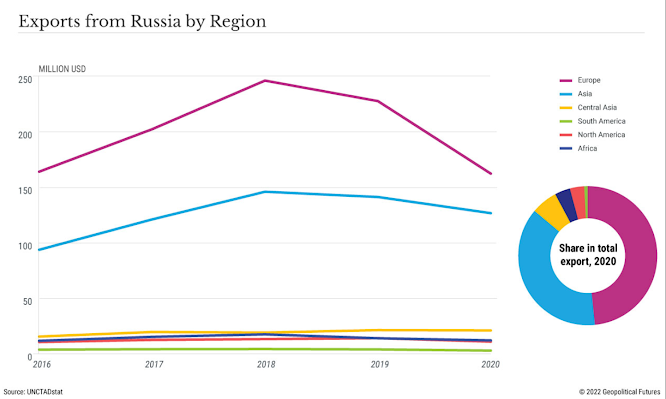Russia Flexes, but Not in Ukraine
History suggests Moscow will soon perform a show of strength somewhere inconsequential.
By: Ekaterina Zolotova
Though the crisis in Ukraine is far from over, many are already asking whether Russia’s decision not to go to war is a geopolitical defeat or victory.
If things stay the course, it’ll be hard to call it a success; so far, Russia has emboldened its enemies, breathed new life into NATO, and risked the imposition of more sanctions on an already shaky economy.
Russia wants the world to think of it as it thinks of itself – as a great power – so rather than admit defeat, Moscow will almost certainly try something else to flex its muscles.
It will play to its strengths: having a seasoned and well-equipped army and engaging with countries that, unlike Europe, don’t really care about Ukraine.
Most important, it will want to do something cheaply and inconsequentially, and preferably somewhere far away where it has had more success than it has had in Ukraine.
Enter Syria
Enter Syria.
Russia has fought in concert with government forces and pro-government militias since September 2015.
Paired with combat operations, it was a diplomatic mission whose express purpose was to show that Moscow can influence events far from its borders.
The plan largely worked.
Despite stark differences with Western governments operating in theater, Russia was able to make itself indispensable to negotiations, cooperate with erstwhile enemies like Turkey, prop up allies like Syria, and mitigate Israeli action.
This is why on Feb. 15, the day before the supposed invasion of Ukraine would begin, Russia’s defense minister was in Syria, where he was to inspect a Russian naval exercise in the Eastern Mediterranean.
That same day, Russian Tu-22M3 and MiG-31K long-range aviation aircraft were not preparing for an offensive in Ukraine; they were relocated to the Khmeimim airfield to participate in the same naval drills.
(Indeed, Russian warships have been all over the Mediterranean for several weeks.)
Russia also renewed its demand for the U.S. to withdraw its forces from Syria, and next week will host talks with the Syrian foreign minister about the prospects for a political settlement of the Syrian crisis.
To be clear, Russia isn’t about to undertake a serious military operation here.
Any war-like scenario threatens Russia’s position in the region, which is fairly modest anyway, and there’s been no activity in Syria recently that would suggest the country is headed for the kinds of territorial changes, refugee outflows or large-scale destruction that has been typical of the civil war there in years past.
Moreover, Russia’s presence in Syria is limited by others involved in the conflict.
Iran is more invested and Turkey more militarily active in Syria, while the Gulf states, led by the United Arab Emirates, appear interested in rebuilding the country.
Then there is Israel, which continues to attack Syria despite Russian requests not to, and the U.S., which is in no hurry to heed Russian demands to withdraw, and in fact may be reviving Iran nuclear talks.
At the same time, Russia understands that there are other players who have enough power and leverage not to take Russia's requests seriously.
Russian activity in Syria therefore looks like little more than another reminder to everyone else that it is still there and still powerful enough to influence conflicts far from its borders.
(This also explains the test launches of ballistic and cruise missiles on Feb. 19 under the personal leadership of President Vladimir Putin.
These exercises traditionally include the launch of an intercontinental ballistic missile at the Kura test site in Kamchatka, but this time Russia launched Kinzhal hypersonic missiles at an unnamed location, as ships and submarines of the Northern and Black Sea fleets launched Kalibr cruise missiles and Zircon hypersonic missiles.
These demonstrations, like the spasm of activity in Syria, are Russia flexing its muscles.)
The Economic Front
Similarly, Russia is loudly advertising interstate contracts and agreements to shore up its credentials as a powerful trade and economic partner, one that can get along fine without Europe.
In February, Russia was particularly emphatic about Putin’s visit to China during the Olympic Games, where Putin received the support of Beijing, including in economic and energy matters, which would offset some of the losses from the Nord Stream 2 natural gas pipeline.
The Kremlin also welcomed a delegation from Latin America, including Brazilian President Jair Bolsonaro and Argentine President Alberto Fernandez, at the height of the invasion hysteria.
Moscow went out of its way to note that, unlike Putin's meetings with European leaders, negotiations took place without maintaining social distance.
Putin and Bolsonaro even shook hands before the talks, and Putin said Argentina is one of Russia's key partners in South America.
But this, too, is artificial.
There are notable limits to how much these countries can and will cooperate.
Sino-Russian cooperation is tenuous as best.
So long as there are divergent interests in the Russian Far East, competition in Central Asia, a refusal to share important technologies, and extremely selective investment, Russia and China will be at odds.
Though relations between Russia and Latin America are much more dynamic, especially in the agricultural sector, neither one is the other’s most important trade partner.
Trade relations with Europe aren’t going away.
It’s imperative for Russia to preserve and enhance its influence in its western borderlands, and part of that strategy is making itself seem stronger and more capable than it is.
History suggests that Moscow will continue to demonstrate more military equipment in different parts of the world without actually using it, especially in Syria, and will discuss economic cooperation with other countries without actually having significant competitive advantages.




0 comments:
Publicar un comentario